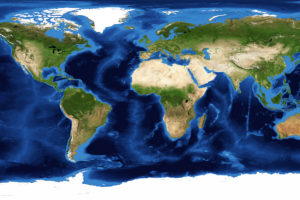Russia and the West

From: David C. Speedie <davidcspeedie@gmail.com>
Date: Sun, Jun 28, 2020
Subject: Russia and the West
To: <letters.editor@ft.com> (Financial Times)
Philip Stephens [“Russia cannot afford a war with the west”, 26 June] contains some home truths about Russia under Vladimir Putin, but comes significantly short of the whole truth, and nothing but the truth. To focus on but a few illustrations:
“So far Mr. Putin’s foreign policy has been tactical rather than strategic. Its goal has been to keep up appearances”. It is correct to characterize the policy as “tactical”, but the whole truth would include the word “reactive”, which describes what Putin, acting in Russia’s best interests — which he is after all paid to do–has done in reacting to the West’s, and especially the United States’ dismissal of Russia [Obama’s jibe was not quite the “throwaway” that Stephens suggests; the throwaway was the “reset” fallacy.] In restoring a sense of national pride–as any honest visitor to Russia in the post-Yeltsin era will acknowledge — Putin has done this quite skilfully, considering the weakness of his hand against America’s full house.
“Above all, he has craved recognition for Russia as a match for the US. … The Russian leader has spent his first two decades in a noisy struggle against the west”. It is, of course, more accurate to say that what Putin — like Gorbachev and Yeltsin before him — sought, at least at first,was a post-Cold War security architecture in which Russia would be a full partner: all three Russian leaders pursued the question of Russia in NATO [President Clinton’s response to Yeltsin, even as NATO was expanding to Russia’s borders, was “I have no problem with that.”]
“The unspoken price [of pursuing tactical policy] has been the acceptance of the role of junior partner in Beijing.” I recall clearly an occasion in the mid-90s, well before Mr. Putin, when a prominent leader of the liberal, pro-west Yabloko bloc in Russia told me that what he feared most [with NATO expansion] was that “you will drive us into the arms of China”. If a junior partnership is now the case, it was and is very much not Russia’s Plan A.
Finally: “Mr. Putin is a creature of the Soviet KGB. It may well be too late for him to escape his own nostalgia.” Well, yes, Putin did work for the KGB, but the second part of this observation is the more damning: it raises the old, tired accusation that he is dedicated to a Soviet rebirth. This familiar and sophistic claim is based on a reflection by Putin that the collapse of the Soviet Union was a “tragedy”. He did indeed say that “anyone who does not see the tragic consequences of the end of the Soviet Union has no heart.” Much less quoted is what he said next: “Anyone who thinks the Soviet Union should be re-created has no head.”
A more honest title for Stephens’s column would be: “Russia cannot afford a war with the west, and does not wish one.”
David C. Speedie
Charlottesville, Virginia
[David Speedie is the founder and former director of the Carnegie Council for Ethics in International Affairs’ program on U.S. Global Engagement.]
